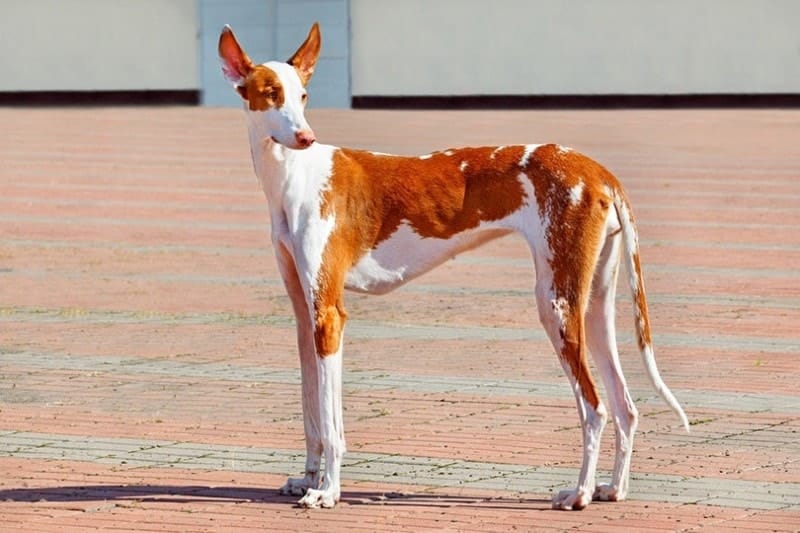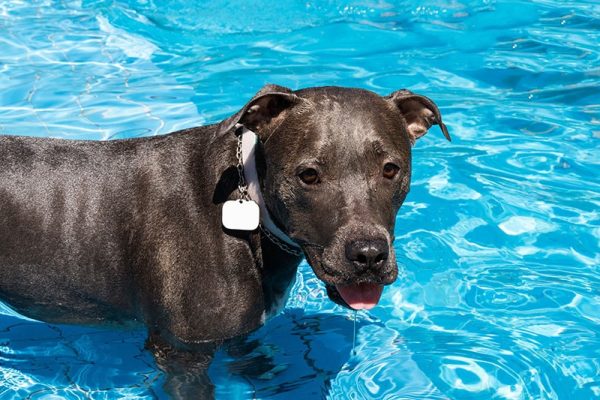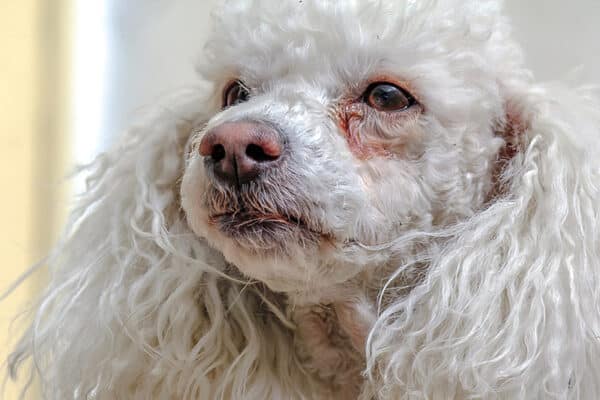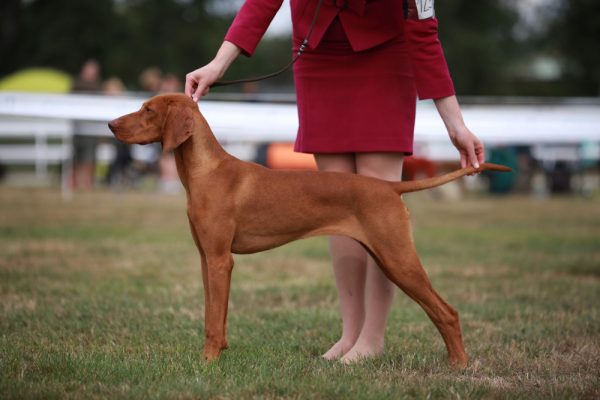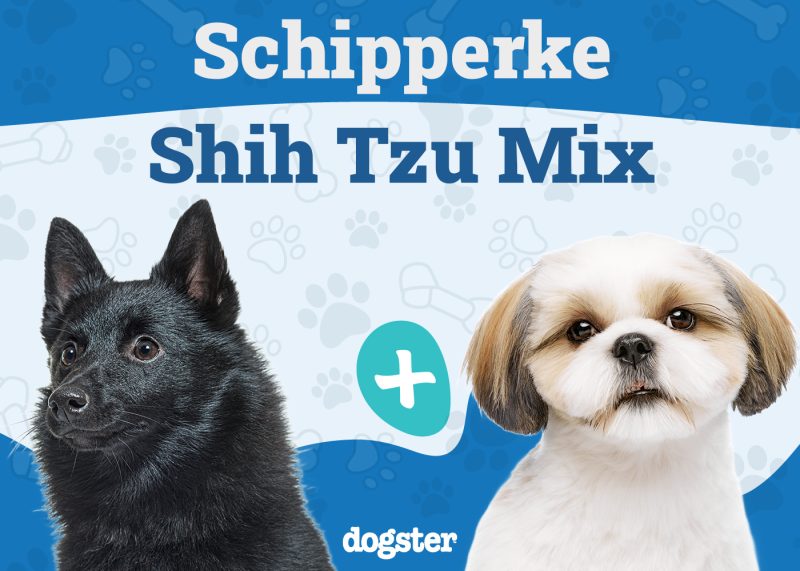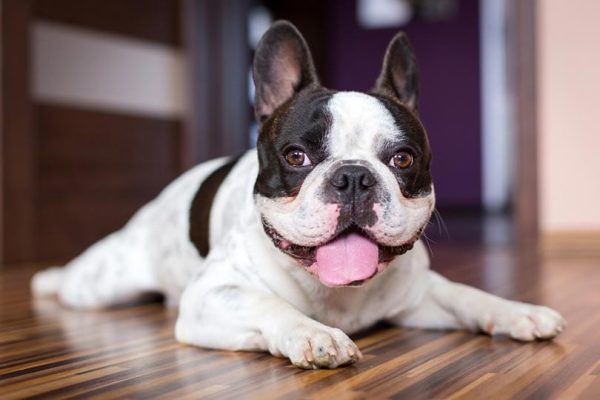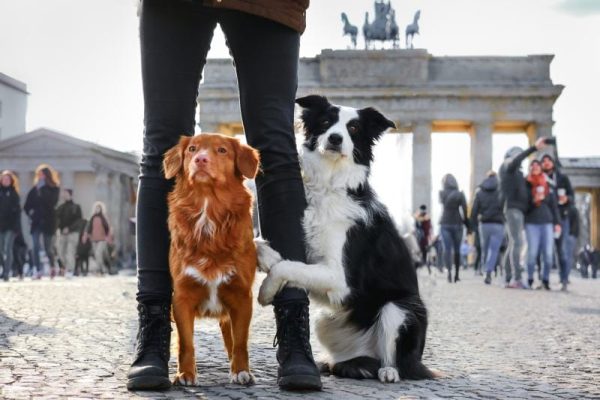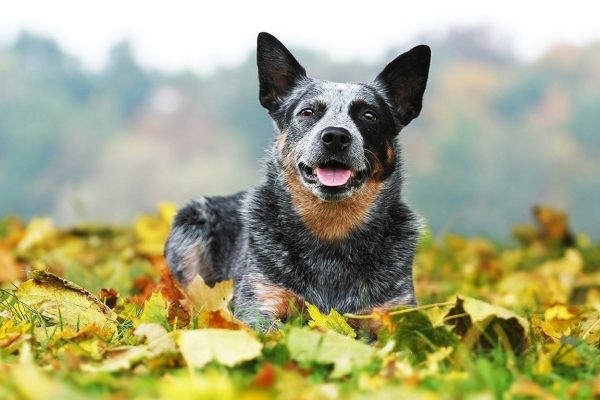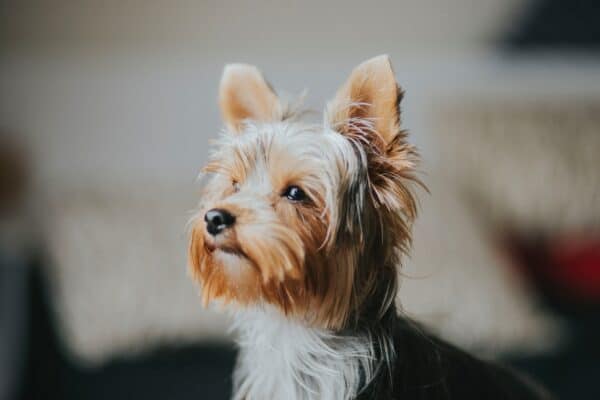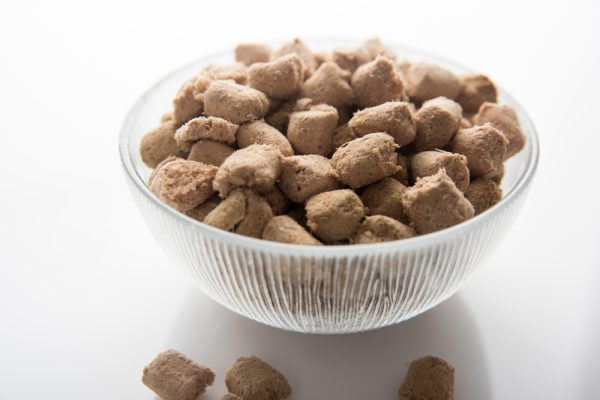In this article
View 8 More +The Ibizan Hound (Pondenco Ibicenco) is a true relic. These staggeringly elegant medium-large dogs’ ancestry dates back to around 3400 BC, and their angular physiques and huge, bat-like ears have been immortalized in ancient Egyptian tomb drawings. Ibizan Hounds were developed in—as the breed’s name gives away—Ibiza to hunt rabbits, and they’ve been on the island for thousands of years since arriving with the Phoenicians.
We’re sure you’re bursting to know more about this graceful but powerful sighthound, so let’s get into all there is to know about the Ibizan Hound.
Breed Overview
Height:
22.5–27.5 inches
Weight:
45–50 pounds
Lifespan:
11–14 years
Colors:
Red, red & white, white, white & red
Suitable for:
Active and loving families that can provide plenty of exercise
Temperament:
Sweet-natured, serene, affectionate, energetic, loyal
Having stood the test of time, Ibizan Hounds continue to be admired today for not only their distinctive features but also for their grace and gentleness coupled with an air of noble dignity. Don’t be fooled by that calm aura, though: Ibizan Hounds are remarkably agile, athletic dogs with a particular talent for leaping high into the air.
Ibizan Hound Characteristics

Ibizan Hound Puppies
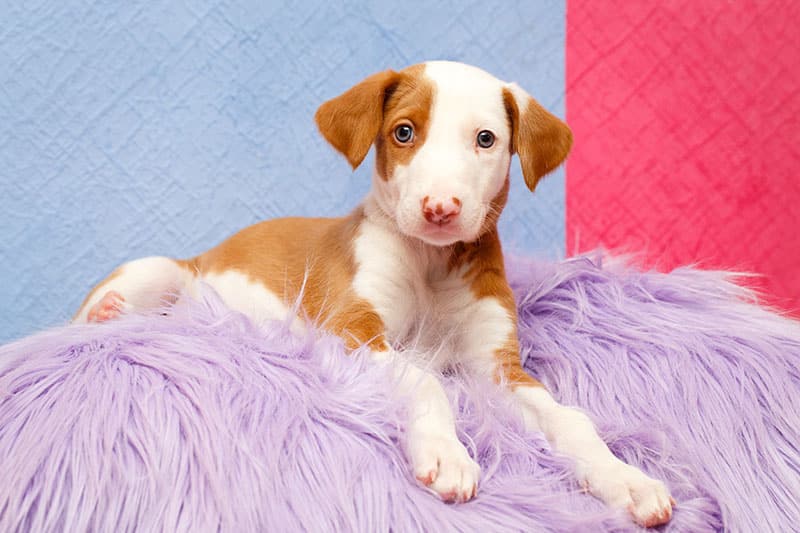
Ibizan Hounds are quite rare in the United States. Nevertheless, over the course of our research, we came across a few rescue organizations based in the U.S. and abroad dedicated to finding Ibizan Hounds new homes. Some of these organizations are based in Spain, where Pondenco dogs are unfortunately often dumped when they can no longer hunt, but liaise with rescue centers in the United States.
If you’d like to open up your home to an Ibizan Hound, we’d urge you to get in touch with rescue organizations like these as there are plenty of dogs that need new homes.
On the other hand, some decide to look into Ibizan Hound breeders. If this is the path you have chosen, exercise due diligence and look for a respectable breeder with high health and welfare standards who treats the puppies like members of the family until they go to their new homes.

Temperament & Intelligence of the Ibizan Hound
It could be said that Ibizan Hound’s physical characteristics align perfectly with what they’re like on the inside. Their litheness and elegance match their serenity and air of dignity while their intelligent faces and soft expressions suggest a dog that’s both gentle and sharp-minded in equal effect.
Ibizan Hounds are often described as being very sweet and clean dogs with good house manners. Unconditionally loving and loyal, they forge deep bonds with their caregivers and their sensitive, intuitive nature makes them excellent companions for all types of families, whether that be a single person or a large family.
These dogs have bags of energy and need to be exercised and played with daily as an outlet. As sighthounds, Ibizan Hounds are highly driven by their instincts, so be careful about letting them off the leash in unsecured areas—if they spot potential prey like a rabbit, they could take off after it without warning.
Are These Dogs Good for Families? 👪
Ibizan Hounds are often very affectionate family dogs and good with kids if you approach socializing them the right way. Their gentleness and touch of goofiness make them ideal playmates for children who treat them kindly.
On that note, when preparing to bring a new dog home, talk to any children at home about how to interact with the dog safely and respectfully. If the children are too young to understand boundaries, be sure to keep an eye out to make sure they don’t grab at the dog or pull on the tail.
Does This Breed Get Along with Other Pets? 🐶 😽
Yes, Ibizan Hounds can get along with other dogs and even cats but, as with children, you need to carefully introduce the animals to each other in a way that will reduce their stress and make the experience feel as non-threatening as possible for all involved.
It’s normal for resident animals to feel threatened by new arrivals, and keeping the new dog apart from them while they adjust to one another’s presence can be helpful. First introductions can be made while each animal is on either side of a pet gate or screen door, or you can leash the dog(s) as a precautionary measure.
Some animals get along really well soon after meeting whereas it takes more time for others—it depends on personality.
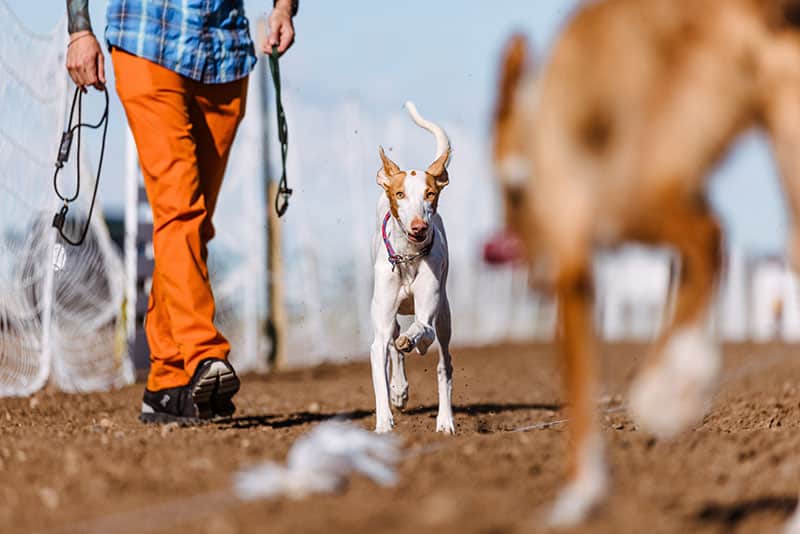

Things to Know When Owning an Ibizan Hound
Food & Diet Requirements 🦴
Ibizan Hounds can be fed a high-quality, commercially available, complete, and balanced formula as long as it ticks all the boxes in terms of your dog’s age and weight. If your dog has a health condition or allergy, a special diet may be required, and you can discuss this with a vet.
According to the Association for Pet Obesity Prevention, in 2022, 59% of dogs were deemed overweight or obese in the U.S.1 Be mindful of how many treats you give your Ibizan Hound during the training period and check the food’s packaging for the correct serving size for your dog’s weight.
Exercise 🐕
Good nutrition must be coupled with plenty of daily exercise for your Ibizan Hound to stay healthy and mentally stimulated. For these highly energetic and swift dogs, the Kennel Club recommends around 2 hours of exercise per day, though individual exercise needs may vary.
They’ll need two or three good walks each day, and this can be supplemented with play sessions. Ibizan Hounds are also talented at canine sports like lure coursing and agility. Your hound is sure to appreciate a fenced-in area to roam freely if possible. Just remember that Ibizan Hounds can jump to a height of 6 feet, so check that they won’t be able to leap over the fences in your yard.
Training 🎾
Ibizan Hounds are very smart and respond well to training based on positive reinforcement. Their people-orientedness makes them very receptive and eager to work with you, but using a harsh tone can cause these sensitive dogs to feel hurt and less willing to do what you ask. The key is to be kind and patient but consistent while making sure your Ibizan Hound doesn’t end up ruling the roost.
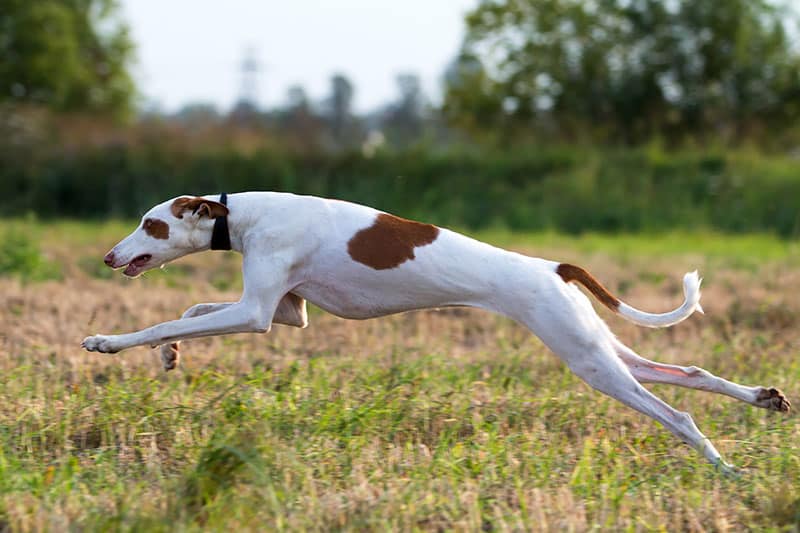
Grooming ✂️
Ibizan Hounds have short coats that can be either smooth or wiry. They don’t shed much, and they only need to be brushed now and again to remove dead hairs. Grooming gloves are good for smooth-haired Ibizan Hounds whereas brushes are better for wiry coats.
Ibizan Hounds only need an occasional bath when they get too dirty. They should have their nails trimmed to prevent them from getting too long and their teeth brushed daily to reduce the chance of dental issues developing.
Health and Conditions 🏥
There aren’t many genetic health conditions linked to Ibizan Hounds, but as with every breed, there are at least a few. One of the most serious conditions—and one that larger, deep-chested breeds are especially at risk of—is bloat, which can cause gastric dilatation-volvulus (GDV). Avoid exercising your dog right after they’ve eaten a large meal or have had a lot of water to help reduce the risk.
Other conditions the Ibizan Hound could potentially inherit include:
- Mild skin conditions that receive prompt treatment
- Hip dysplasia
- Autoimmune thyroiditis
- Deafness
- Eye disorders
Male vs Female
If you search this on Google, you’re sure to find plenty of generalizations, like that male dogs are more affectionate while females are more independent but avoid basing your decision on whether to get a male or female dog on these generalizations. The only evidence to suggest these differences is anecdotal in nature.
Instead, we recommend spending time with your potential future dog and getting to know them by talking with the breeder or rescue organization about their personality and needs. A dog’s personality is shaped by various factors including genetics and socialization—whether they’re male or female doesn’t play a big role.
However, you should bear in mind that male and female dogs display certain hormone-related behaviors when they’re not neutered or spayed. For example, for unneutered male dogs, the scent of an unspayed female can bring out a stronger territorial side and trigger behaviors like urine marking and roaming. Female dogs are said to become more restless and irritable when in heat and may urinate with greater regularity than usual.

3 Little-Known Facts About the Ibizan Hound
1. Ibizan Hounds Blush
Just like the Pharaoh Hound, a similar-looking breed, the Ibizan Hound has the tendency to blush when overcome with excitement.
2. Ibizan Hounds Were Developed for Survival
While some dog breeds were developed as sporting hunters, the Ibizan Hound had to hunt because food wasn’t easy to come across on the island of Ibiza many years ago.
3. Hannibal Owned Ibizan Hounds
The Carthaginian general Hannibal (247–183 or 181 BC) journeyed across the Alps accompanied by an army and some Ibizan Hounds.

Final Thoughts
When cared for in a safe and loving environment, the gentle-natured Italian Hound truly thrives. They do have a mischievous side, though, and they’re so smart and energetic that they could easily get up to no good if they don’t receive enough mental stimulation and exercise.
If you’re up for the challenge of socializing, training, and providing dedicated care for a sweet medium-large dog with high exercise needs, the Ibizan Hound or an Ibizan Hound mix could be the companion you need at your side.
Featured Image Credit: Sergii_Petruk, Shutterstock
